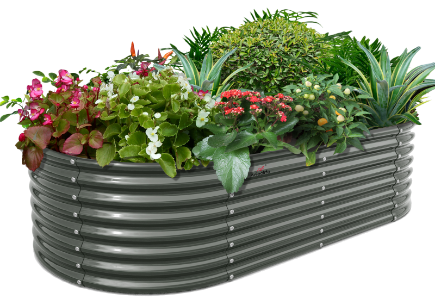-
 Encontrar enMiembros
Encontrar enMiembros Encontrar enVideos
Encontrar enVideos Encontrar enCanales
Encontrar enCanales
This website uses cookies to ensure you get the best experience on our website.
To learn more about our privacy policy haga clic aquíPreferencia de privacidad
- Etiquetas - #BLOG
-
- Última actualización 3 de oct. 0 comentarios, 23 vistas, 0 likes
More in Politics
Related Blogs
Archivo
The Ultimate Guide to Building a Raised Garden Bed: Materials, Design, and Tips
Cuerpo
Creating a raised garden bed is an excellent way to enhance your gardening experience. Not only do these beds improve drainage and soil quality, but they also make gardening more accessible. In this guide, we will explore the essential materials, design considerations, and tips for building a successful raised garden bed.

Understanding the Benefits of a Raised Garden Bed
Why should you consider a raised garden bed? Here are some compelling reasons:
- Improved Drainage: Raised beds allow excess water to drain away, preventing root rot.
- Better Soil Quality: You can customize the soil mix to suit your plants' needs.
- Accessibility: Elevated beds reduce the need for bending and kneeling, making gardening easier for everyone.
- Pest Control: Raised beds can deter certain pests and make it easier to manage weeds.
Materials for Your Raised Garden Bed
Choosing the right materials is crucial for the longevity and effectiveness of your raised garden bed. Here are some popular options:
- Wood: Cedar and redwood are naturally resistant to rot, making them ideal choices.
- Metal: Galvanized steel beds are durable and can add a modern aesthetic to your garden. You can find high-quality options at
.
- Concrete Blocks: These provide excellent insulation and can be arranged in various designs.
- Bricks: A classic choice that offers a rustic look and durability.
Designing Your Raised Garden Bed
When designing your raised garden bed, consider the following factors:
- Size: A width of 4 feet is ideal for easy access from both sides, while the length can vary based on your space.
- Height: Typically, a height of 12 to 24 inches is sufficient for most plants.
- Location: Choose a spot that receives at least 6-8 hours of sunlight daily.
Tips for Successful Gardening in Raised Beds
To maximize the benefits of your raised garden bed, keep these tips in mind:
- Soil Mix: Use a blend of compost, topsoil, and peat moss for optimal growth.
- Crop Rotation: Change the types of plants you grow each season to maintain soil health.
- Mulching: Apply mulch to retain moisture and suppress weeds.
In conclusion, building a raised garden bed can transform your gardening experience. By understanding the benefits, selecting the right materials, designing thoughtfully, and following expert tips, you can create a thriving garden that brings joy and nourishment. Happy gardening!









Comentarios